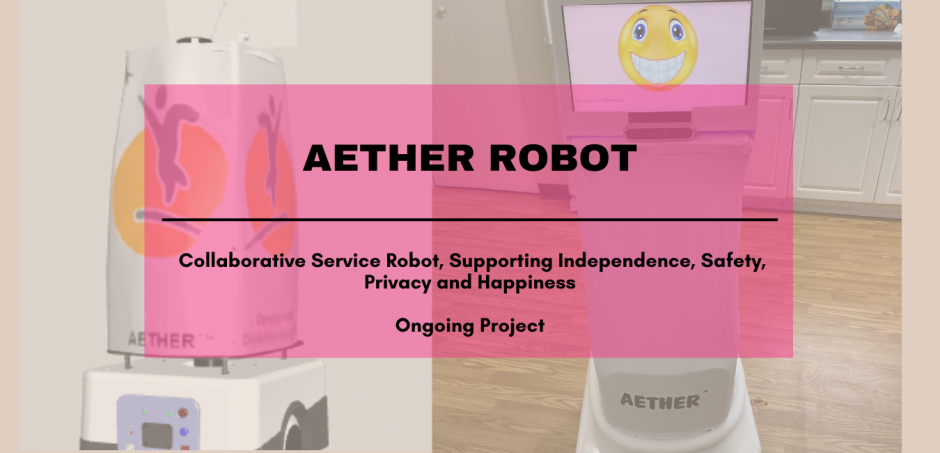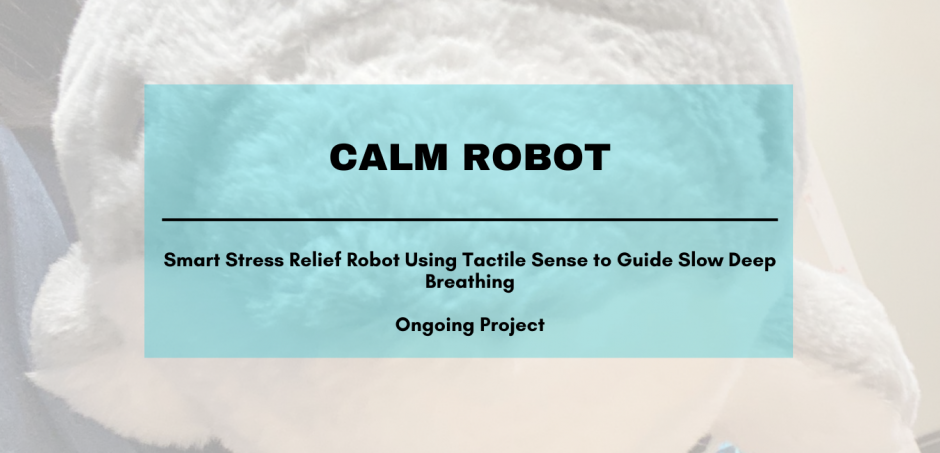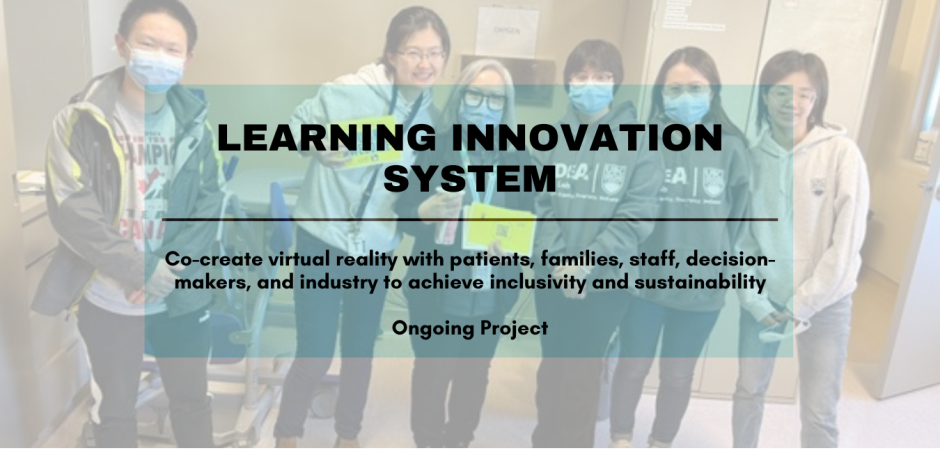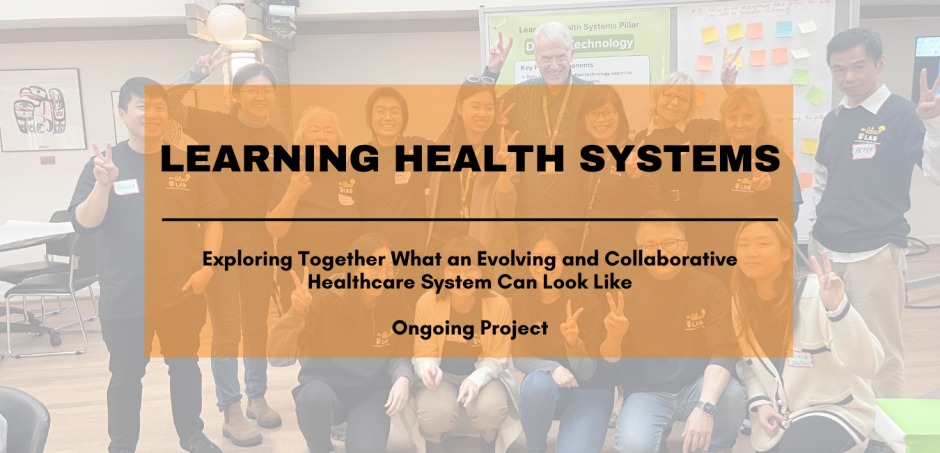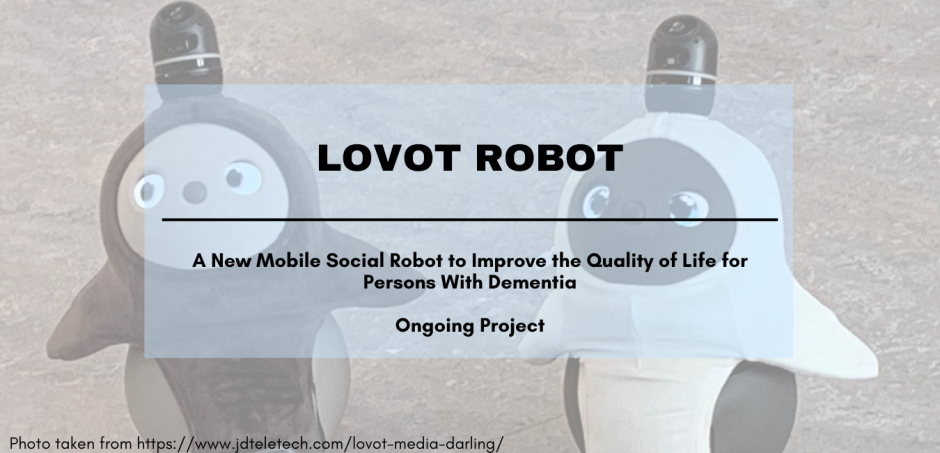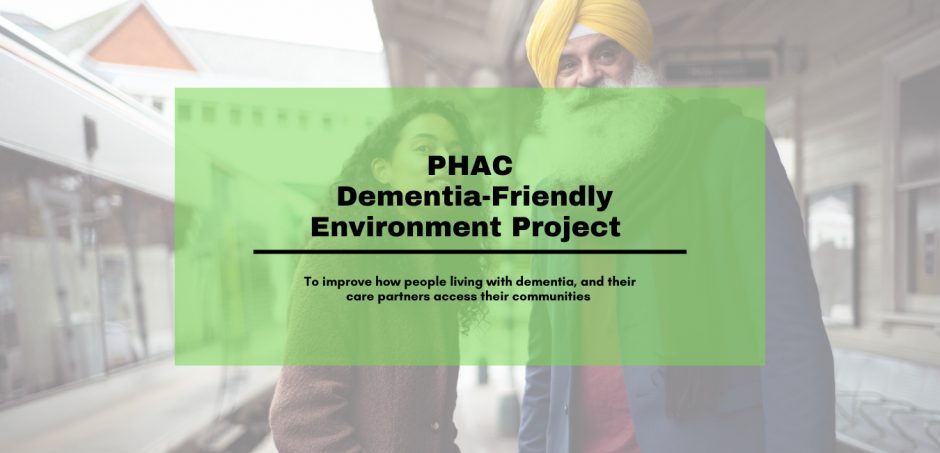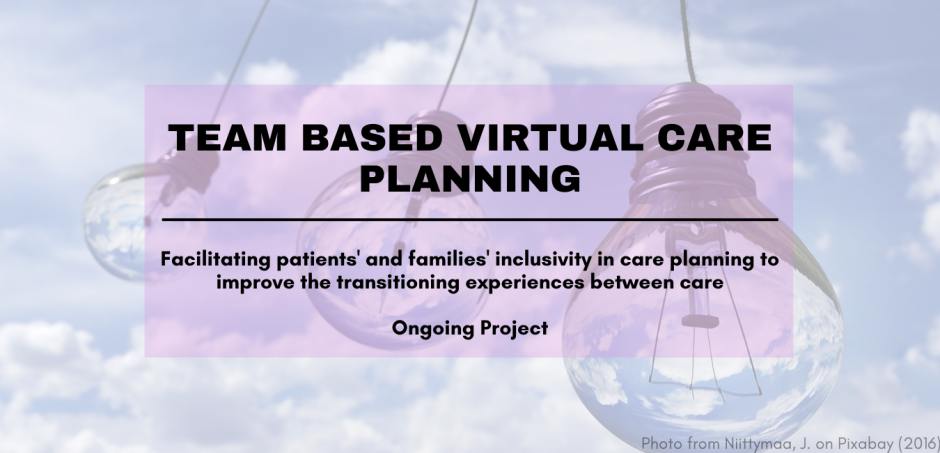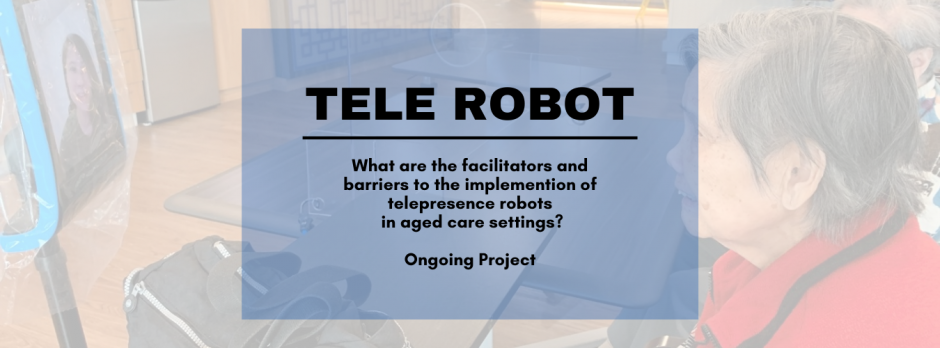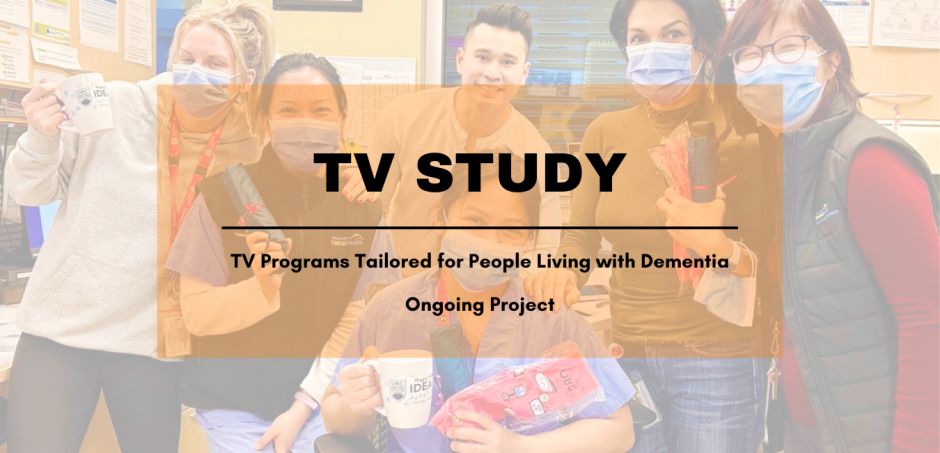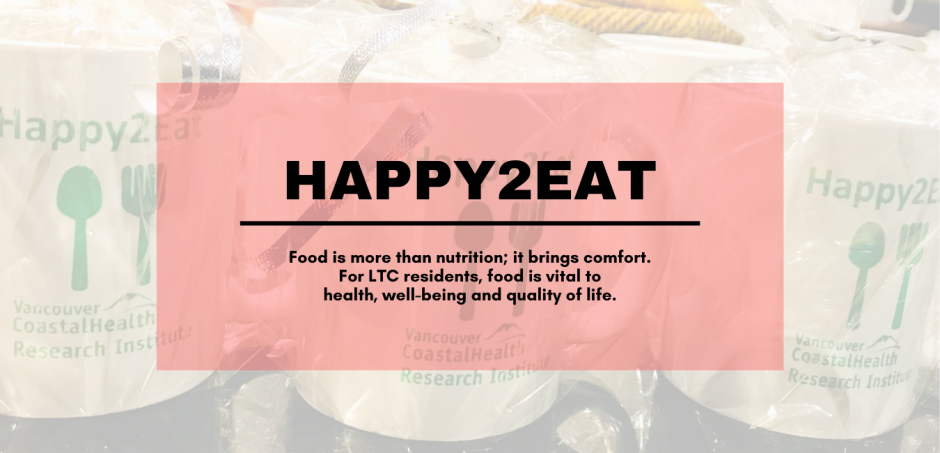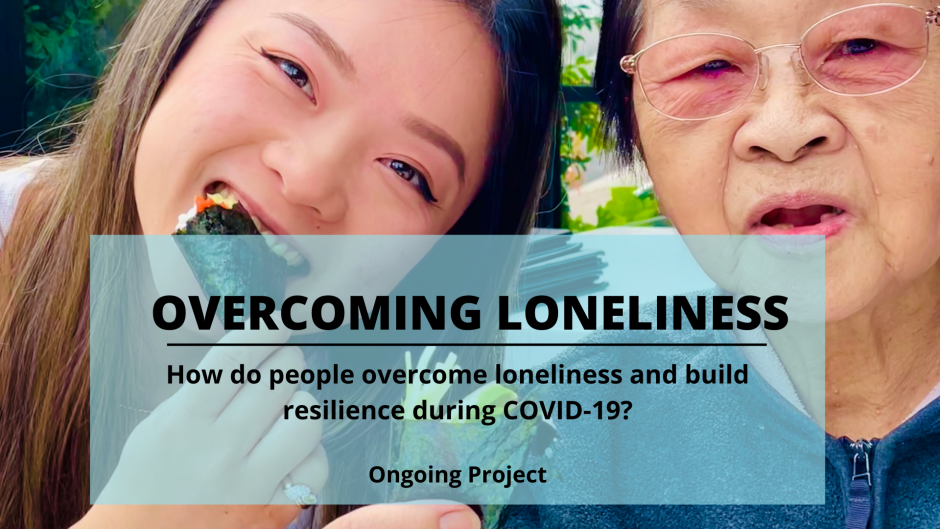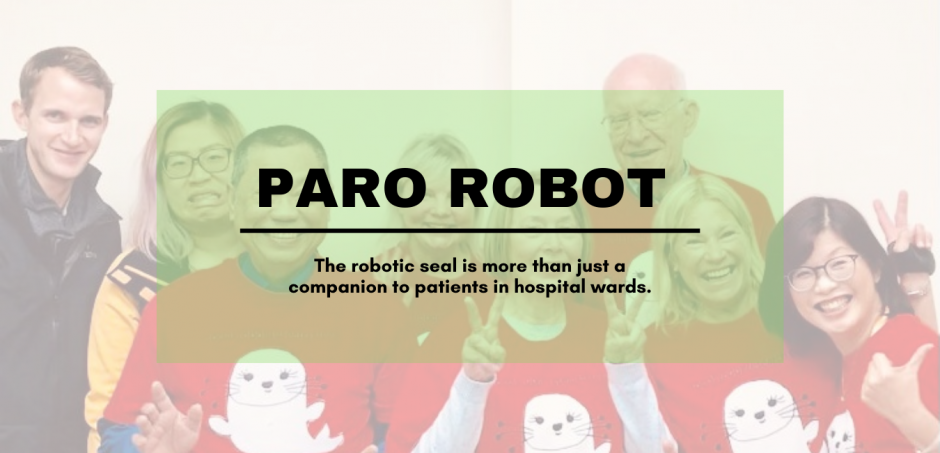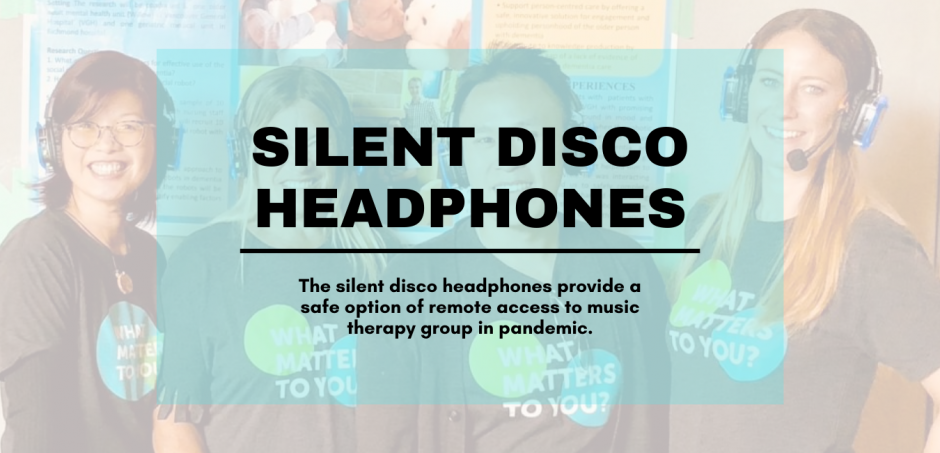Projects

Current Project Highlights
- Aether RobotAether Robot: A Collaborative Service Robot, Supporting Independence, Safety, Privacy and Happiness Aether is a collaborative service robot, designed for staff and residents working and living in care homes to support independence, safety, privacy and happiness. This project will build on previous work accomplished by JDQ Systems Inc. and the Developmental… Read more: Aether Robot
- CALM RobotCALM Robot Anxiety is a prevalent mental health condition that is caused by various psychological stressors. Deep breathing is identified as an effective practice for stress management. Practicing diaphragmatic breathing can help manage chronic pain, decrease muscle tension, and reduce stress and anxiety. CALM Robot is a… Read more: CALM Robot
- Co-Create Virtual Reality in Long Term CareCo-create Virtual Reality in Long Term Care What is the purpose of this study? To collaboratively develop a Virtual Reality Immersive Program in partnership with older adults, individuals who are living with dementia, their care partners, staff, and decision-makers in long-term care. What is Virtual Reality (VR)?… Read more: Co-Create Virtual Reality in Long Term Care
- Co-Create Virtual Reality/Learning Innovation System (LIS)Co-Create Virtual Reality/Learning Innovation System (LIS) The hospital environment for older adults living with dementia can exacerbate symptoms of anxiety, depression, and emotional distress. Further, hospitalized patients experience digital inequity. They lack access to technology for non-pharmacological psychosocial interventions. This project aims to establish a novel model-Learning Innovation System (LIS)- in a hospital… Read more: Co-Create Virtual Reality/Learning Innovation System (LIS)
- Cycling Game: Exploring the Acceptability and Use of Gamified Rehabilitation Exercise for Older Adults in Long-Term CareCycling Game: Exploring the Acceptability and Use of Gamified Rehabilitation Exercise for Older Adults in Long-Term Care Gamified Rehabilitation exercises contribute to supporting older adults who experience functional and cognitive impairments in Long Term Care (LTC) homes through a more motivating and entertaining way. The gamified rehabilitation… Read more: Cycling Game: Exploring the Acceptability and Use of Gamified Rehabilitation Exercise for Older Adults in Long-Term Care
- Learning Health SystemsLearning Health Systems: Exploring Together What an Evolving and Collaborative Healthcare System Can Look Like How Will This Be Achieved? The IDEA Lab is teaming up with Vancouver Coastal Health’s Vancouver Community Health Services (Vancouver Community), with support from the Michael Smith Health Research BC C2 grant, to explore… Read more: Learning Health Systems
- Lovot RobotLovot Robot: A New Mobile Social Robot to Improve the Quality of Life for Persons With Dementia Approximately 50 million people worldwide are living with dementia. Social robots have been developed and tested to determine whether they improve the quality of life for persons with dementia. A… Read more: Lovot Robot
- PHAC: Dementia-Friendly Environment Project Funded by the Public Health Agency of Canada, this project aims to improve how people living with dementia, and their care partners, access their communities. DemSCAPE (Dementia-inclusive Streets and Community Access, Participation and Engagement) is a three-phase project.
- Sleepsense: Implementing SleepSense Technology for Hospitalized Older AdultsSleepsense: Implementing SleepSense Technology for Hospitalized Older Adults The team aims to explore the feasibility and acceptability of SleepSense® technology in an in-patient subacute geriatric and psychiatric setting. SleepSense® is a non-wearable, unobtrusive sleep monitoring sensor, different from the currently in place visual checks and nursing documentation,… Read more: Sleepsense: Implementing SleepSense Technology for Hospitalized Older Adults
- Students and AI in Academia: Exploring Students’ Perspectives on the Use of AI-Enabled Services, such as ChatGPT, in AcademiaStudents and AI in Academia: Exploring Students’ Perspectives on the Use of AI-Enabled Services, such as ChatGPT, in Academia As AI services grow increasingly popular, AI may provide opportunities to both enhance learning and introduce risks to the learning process. One of the most popular AI-enabled tools… Read more: Students and AI in Academia: Exploring Students’ Perspectives on the Use of AI-Enabled Services, such as ChatGPT, in Academia
- Team-Based Virtual CareTeam-Based Virtual Care: Striving for Seamless Inclusive Care Virtual care facilitates patients’ and families’ inclusiveness in care planning, which improves the transition experience. This Canadian Institutes of Health Research (CIHR)-funded program adopts a Patient-Oriented Research (POR) and Integrated Knowledge Translation (IKT) approach via the diverse engagement of… Read more: Team-Based Virtual Care
- Telepresence Robot ProjectSocial isolation is a significant issue in aged care settings such as long-term care (LTC) and hospitals and is associated with adverse outcomes such as reduced well-being and loneliness. Mobile Telepresence Robots such as the Double 3 robot, may help address social isolation and loneliness among older adults in LTC homes.
- TV Study: TV Programs Tailored to People Living With DementiaTV Study: TV Programs Tailored to People Living With Dementia This project explores the use of a TV program that consists of videos tailored to people living with dementia’s needs and interests. This project investigates how this program may be used as a resource improving the quality… Read more: TV Study: TV Programs Tailored to People Living With Dementia
- Virtual Reality Program in Long Term CareVirtual Reality Program in Long Term Care Poster Youtube Links Our Team Principal Investigator: Dr. Lillian Hung Lab members: Jim Mann, Mona Upreti, Alisha Tumar, Winnie Kan and David So Project Co-leads: Sonia Hardern (Regional Practice Lead, Research and Knowledge Translation) & Joey Wong. Questions? Email Joey… Read more: Virtual Reality Program in Long Term Care
Past Projects
- Happy2EatFood is more than nutrition; it brings comfort. For residents in long-term care facilities, food is vital to health, well-being, and quality of life. Our research aims to focus on supporting both resident and staff needs during mealtimes.
- Online Chair Yoga for People with DementiaOnline Chair Yoga Project: Helping Peoples with Dementia with Stress, Pain and Flexibility Can an online chair yoga program help people with dementia to reduce stress, relieve pain, and improve… Read more: Online Chair Yoga for People with Dementia
- Overcoming LonelinessThis research investigated the state of loneliness of residents and the staff living and working in LTC homes during the COVID-19 pandemic. It aimed to identify non-pharmacological ways to decrease loneliness and to work with stakeholders to co-develop policies. This research will be useful in improving the quality of life for residents in LTC homes.
- Paro: A Social RobotInteraction with PARO, a robotic pet seal, can have positive psychological, physiological, and social effects on users. Our research aims to investigate how PARO can be used meaningfully and effectively in hospitals for patients with dementia and delirium.
- Silent Disco HeadphonesMusic is so widely available and inexpensive in the modern world; it is a common option for stress reduction, comfort and enjoyment. The study’s main objective is to explore whether music delivered by Silent Disco Headphones was feasible and acceptable to a sample of inpatients staying in an older adult mental health unit of a large urban hospital.
